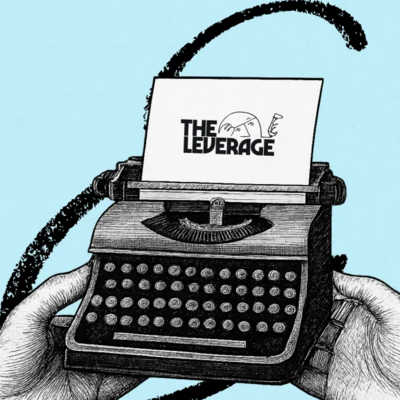
Was this newsletter forwarded to you? Sign up to get it in your inbox.
The defining document of the internet is not a hacker’s manifesto or some cyberpunk screed espousing the virtues of anarchy. Instead, it is a permission slip, dotted and signed by the U.S. federal government, entitled Section 230. This portion of the Communication Decency Act, which was enacted in 1996, allowed websites to publish users’ content while not being held legally liable for what those users posted.
It made the internet into anyone’s playground, and what gave rise to today’s social media giants. You could build what you wanted, for whomever you wanted, without worrying about being prosecuted if someone used your platform to commit a crime.
However, it feels like many within the technology sector have retconned the internet years as some sort of laissez faire, who is John Galt, utopia: The government didn’t get involved, and so, innovation flourished. Ergo, if the government simply got out of the way of every other sector in which tech plays a role, America would flourish. You can see this attitude manifest in the celebratory, tech-sector assisted dismantling of the federal government currently underway. The wonton slashing and burning of regulation should clear the way for founders to revitalize America, or so the thinking goes.
It is far beyond the scope of this column to make pronouncements on politics and on whether these people are correct—but I think it is important to examine their belief systems because the sectors that matter the most for the future will be largely determined by whomever occupies 1600 Pennsylvania Avenue. AI, nuclear, space, robotics, biotechnology, all will rely on blessings of the federal powers at some point in their journey. With the Trump election, it feels like we have a fairly clear signal for how policy will be conducted on the political right to support (or destroy) the industries of their choice.
However, it has been remarkably difficult to find a clearly articulated vision by the left about our technological future. This week, New York Times opinion columnist Ezra Klein and Atlantic staff writer Derek Thompson co-published a book aimed at remedying that.
Ironically titled Abundance, despite it only being 226 pages of writing partially cribbed from previously published pieces, Klein and Thompson posit that by embracing technology and crafting new policy that encourages more supply-side providers, Democrats can fix America. They argue that most policies spearheaded by Democrats since the 1970s have focused on subsidizing consumer demand, such as offering home loans to disadvantaged buyers. If instead they focused on also encouraging more competition, such as new homebuilding technology, encouraging more construction entrepreneurs, or slashing zoning regulations—Democrats could reduce the price of essential services and the world would be a better place.
Back to Section 230: Regardless of how you feel about the specific shape of the modern internet, the law has been enormously effective—its shielding effect has protected generations of startups from lawsuits. Good regulation does that: it protects what needs to be protected and otherwise allows competition to flourish. Abundance argues that the American left has largely lost sight of what good policy entails, and offers an idea about how to fix that.
The few, the proud, the neoliberal
The authors identify four areas of governance failures in the U.S., and spend much of their book looking into specific problems in California and New York City. These two places act as important case studies because they are centers of Democratic power—the left cannot blame anyone but themselves for governmental shortcomings in these states. The authors get into how those failures have manifested themselves, but one striking feature is that the two states have the highest loss of population due to immigration to other states. Klein and Thompson mostly focus their arguments the things that matter most to quality of life for Americans:
1) Housing: Do you need me to tell you that housing in this country is too expensive? I don’t think so. The authors’ find the blame largely sits with restrictive zoning policies and weaponized environmental zoning laws. Multi-unit dwellings aren’t possible to build in many communities, and even when they are possible, they are blocked by voting blocs who object to their construction on environmental grounds.
2) Transportation: Public transportation in the U.S. is notoriously more expensive to build per square mile compared with our European counterparts. The authors find the blame largely sits with, you guessed it—burdensome regulation and environmental overreach.
Alright, I’m going to combine the next two because you can likely guess the punchline.
3&4) Energy and health: Too expensive, and once again, held back by well-meaning but ultimately harmful regulation.
The Only Subscription
You Need to
Stay at the
Edge of AI
The essential toolkit for those shaping the future
"This might be the best value you
can get from an AI subscription."
- Jay S.
Join 100,000+ leaders, builders, and innovators

Email address
Already have an account? Sign in
What is included in a subscription?
Daily insights from AI pioneers + early access to powerful AI tools









Comments
Don't have an account? Sign up!